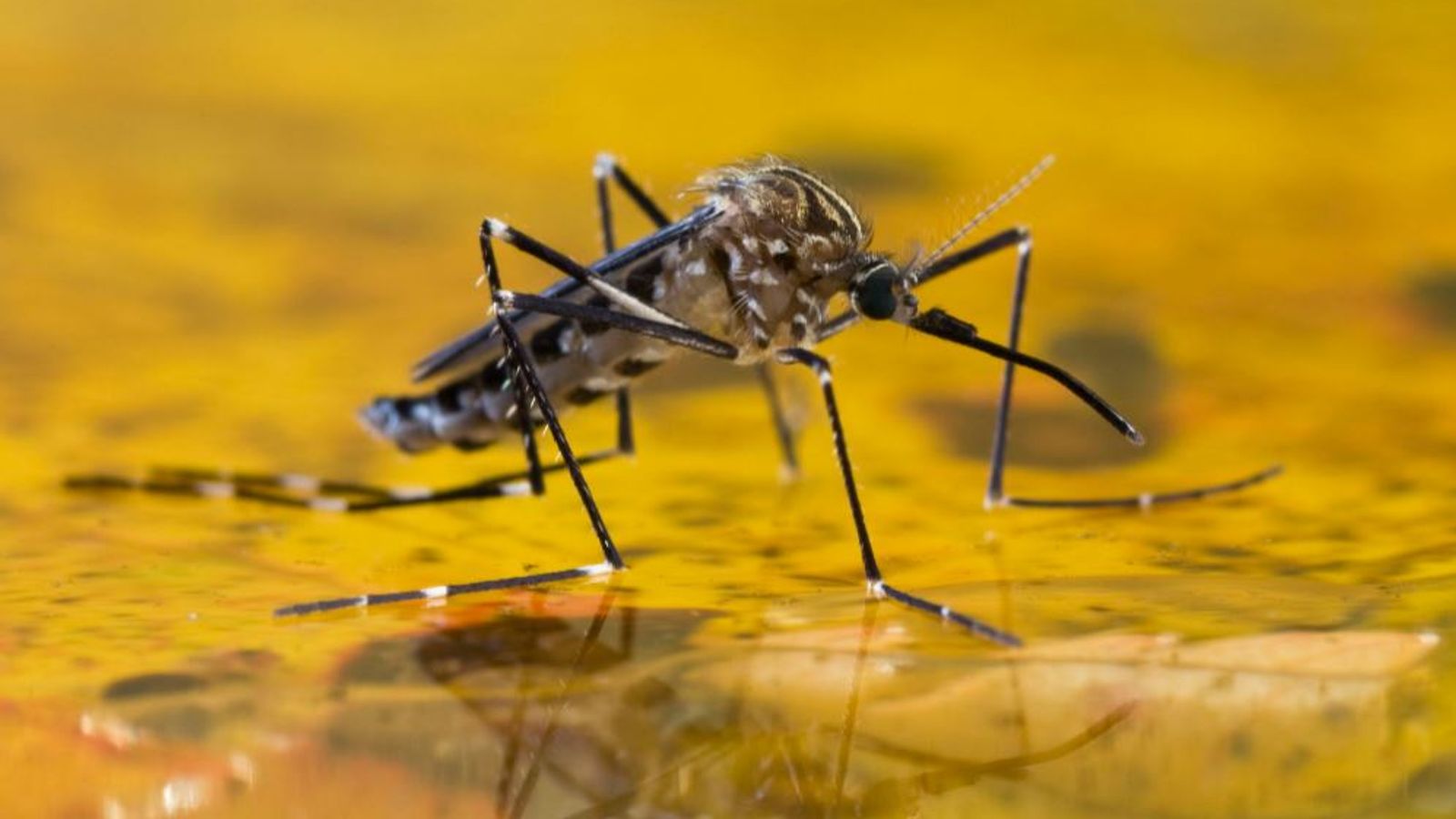The world’s most effective malaria vaccine has been developed by scientists in the UK.
Researchers from the University of Oxford and their partners reported their Phase IIb trial of a candidate malaria vaccine, R21/Matrix-M, showed 77% efficacy over 12 months.
That makes it the first ever to achieve the World Health Organisation-specified 75% efficacy goal.
The team behind the new jab hope it can be approved for use within the next two years, building on the speed and lessons learned through the rapid development of COVID-19 vaccines.
Adrian Hill, director of the Jenner Institute, and Lakshmi Mittal, professor of vaccinology at the University of Oxford, led the research behind the Oxford-AstraZeneca coronavirus vaccine.
As co-author of the paper, Prof Hill said: “With the commitment by our commercial partner, the Serum Institute of India, to manufacture at least 200 million doses annually in the coming years, the vaccine has the potential to have a major public health impact if licensure is achieved.”
He said he was “pretty confident” that the efficacy could be replicated in the next phase of the trial.
“And we and others have found that if you vaccinate just before the malaria season, you get maybe a 10% improvement or something like that in efficacy – that’s not published yet but will be coming out fairly soon from another group,” he said.
Asked if this was the most effective malaria vaccine in the world, Prof Hill said: “It is in the sense that no other vaccine has had a primary endpoint with over 75% efficacy, yes.
“So we’re excited about that. But as you know, there’s a final phase of testing to go through.”
Prof Hill said the team hoped to report results of the final stage of the trial next year.
“Malaria killed at least four times as many more people in Africa last year as COVID did,” he said.
“And nobody for a moment questioned whether COVID should have an emergency use review and authorisation in Africa – of course it did, very quickly.
“So why shouldn’t a disease that firstly kills children rather than older people, certainly killed an awful lot more, be prioritised for emergency use authorisation in Africa?
“Nobody’s really ever asked that question before COVID, but we’re going to do so, and have been doing so, and regulators are sounding interested.
“Normally this would take three to five years to do a phase three trial – in that time 300,000 children in Africa will die every year of malaria.
“Why should it take that long?
“We think that there is a similar case for deploying malaria vaccines early to save lives, that there is for deploying COVID vaccines.”






















